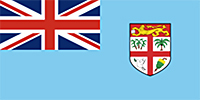

 斐济
斐济 Home→斐济→游学攻略
Home→斐济→游学攻略签证(英语:Visa,源自拉丁语:charta visa,意为必须看到的文件),是一个国家或地区的行政机关在非本国或地区的公民所持的护照或其他旅行证件上的签注、盖印、附文(如另纸签证),以示允许其出入本国国境(或者经过其国境前往第三国)的手续。有时一国政府会对另一国家的公民推出签证优惠政策。
各国政府为了便于管理,通常会根据外国人的入境目的办法不同的签证,包括:
过境签证(Transit Visa):用于中转交通工具回国或前往第三国,此种签证通常允许持证人停留7天以内并禁止从事工作。
旅游签证(Tourist Visa):用于旅游观光,此种签证通常允许持证人停留90天以内并禁止从事工作。
商务签证(Business Visa):用于从事商务活动(如商务洽谈、合作)等,其属性与旅游签证类似。
工作签证(Working Visa):允许外籍人士从事工作,此类签证有效期通常较长。部分国家不签发此类签证,需要由申请人向劳工部门申请工作准证。
配偶签证(Spousal Visa):用于公民的外籍配偶。
学生签证(Student Visa),允许外籍留学生接受教育。对于持证人是否允许打工,各国规定不一。
工作假期签证(Working Holiday Visa):允许旅行者出于弥补其旅行资金的目的而在签证颁发国受雇工作。
外交签证(Diplomatic Visa)或公务签证(Official Visa):供外国国家元首、外交官或眷属使用。
礼遇签证(Courtesy Visa):用于政府邀请的外国客人。
记者签证(Journalist Visa)
居留签证(Immigrant Visa)
退休签证(Pensioner Visa)
特别类签证(Special Category Visa)
移民签证:得到该签证后才能申请国籍
电子签证:最早出现在澳大利亚;此外还有香港曾经办理过的“网上快证”等类似措施。
ID身份证(ID Card)
落地签证(On-arrival Visa)通常只有在经济较差的国家中出现,在抵达该国时向移民部门申请,短时间就可得到,不能跟入境卡混淆。
单次入境签证(SEV)
此签证有效期为3个月,仅可用于前往斐济的单程旅行。
多次入境签证(MEV)
此签证有效期为自签发之日起12个月内向斐济多次入境。每次入境的逗留时间不得超过4个月。
假期目的(旅游/探亲/访友)
事实上,斐济在2015年3月14日起,对中国游客实行了免签政策,中国游客前往斐济旅游可享受落地签证待遇,可获最多停留4个月的签证。
入境的时候持护照(6个月以上有效期)和返程或赴第三国联程机票以备查验
学习目的
按照斐济移民局的法律,不管是一周还是一个月,学习任何东西,就需要学习签证。在斐济旅行签证(免签)来学习是违法的。中韩日的国民可以免签在斐济停留4个月,但凭这个旅行签证,既不能学习,也不能做工作。
长期学习签证 停留时间1年
所需材料
1. 护照复印件
2. 往返机票信息
3. 护照照片大小两张
4. 在校证明(在校证明、毕业证明、休学证明)3选1(英文)
5. 成绩单(英文)
6. 健康诊断书(英文)
7. 无犯罪证明(英文)
8. 居民登记副本/户口证明/出生证明 3选1(英文)
9. 签证申请表(学校提供)
短期学习签证 停留时间84天83晚(只适用于FBI语言学校,其他学校都学要办理长期学生签证)
所需材料
1. 护照复印件
2. 往返机票信息
超短期学习签证 停留时间14天13晚(只适用于FBI语言学校,其他学校都学要办理长期学生签证)
所需材料
无需特殊申请
商务/工作目的
因商务考察需要,可向移民局申请有效期为半年的居留许可,获得居留许可者在有效期内可多次出入境。工作居留许可,斐济的公司或雇主按合同从国外聘用的雇员或专业特长人员一般可获得有效期3年的工作居留许可。期满后,用人单位或雇主向移民局说明其留任的必要性后可申请延期。
所需材料
1. 护照复印件
2. 往返机票信息
3. 护照照片大小两张
4. 经济担保信函(英文)
5. 工作雇佣合同(英文)
6. 银行存款证明(英文)
7. 健康诊断书(英文)
8. 无犯罪证明(英文)
9. 签证申请表
过境目的
用于中转交通工具回国或前往第三国。中国属于免签国,不需要提前申请过境签。
入境是准备好以下材料以备入境检查。
1. 护照复印件
2. 下一个目的地的机票
3. 下一个目的地的签证
永久居留目的
在斐出生者、配偶是斐公民者、父母一方是斐公民的未成年人以及在斐合法居住超过5年者,均可申请永久居留许可。
所需材料
1. 护照复印件
2. 往返机票信息
3. 护照照片大小两张
4. 经济担保信函(英文)
5. 工作雇佣合同(英文)
6. 银行存款证明(英文)
7. 健康诊断书(英文)
8. 无犯罪证明(英文)
9. 签证申请表
Visit Fiji
Q: What are the entry requirements for visiting Fiji?
A: http://www.immigration.gov.fj/index.php/travel-options/visit-transit-in-fiji
Q: Where can I find information about places to visit in Fiji?
A: http://www.fiji.travel/
Q: How can I extend my visitor's permit
A: http://www.immigration.gov.fj/index.php/travel-options/visit-transit-in-fiji
Q: How long can I stay as a visitor?
A: Maximum of six months. Four months initially is given on arrival upon meeting all entry requirements. Two months can be issued through applying for extension.
Q: I am overseas at the moment, but would like to visit Fiji and look for a job.
A: You need to search for Fiji vacancies on the web while you are out of Fiji.
Q: Can I enter Fiji on a one way ticket?
A: Only Fiji citizens and those on valid work permits or exemption status can visit Fiji on a one way ticket. The rest will need to visit Fiji on a return ticket.
Q: Can a visitor be sponsored?
A: Yes, a sponsor letter can be from a local or a person holding valid permits in Fiji.
Q: I'm coming to Fiji to participate in a sports event. What permit do I need?
A: A 14-days business visa, free of charge, will be issued on arrival
Q: Cruise ship passengers
A: If a passenger is disembarking from the vessel, he/she will need a return ticket to his/her country of domicile.
Q: Can I take a short course while in Fiji?
A: http://www.immigration.gov.fj/index.php/student-permit
Q: Can I travel to Fiji as a visitor, and apply for residence from there?
A: No.
Q: Can I visit my children/grandchildren in Fiji?
A: Yes
Q: As a visitor, can I apply for a different permit while I'm in Fiji?
A: No
Study in Fiji
Q: How can I get a student permit?
A: http://www.immigration.gov.fj/index.php/student-permit
Q: Can I work in Fiji after graduation?
A: This neither allowed nor encouraged. Apply for a work permit.
Q: If I am on a student permit, will my child have to pay foreign student fees to study here?
A: Yes, foreigners pay a rate different from the local one.
Q: How can I extend my current student permit?
A: http://www.immigration.gov.fj/index.php/student-permit
Q: What happens when my student enrollment has been terminated?
A: The institution has to advice the Department of Immigration on any termination of a student’s enrollment. Read the Terms and Conditions for student permit.
Q: How do I choose a school for my children in Fiji?
A: Contact the Ministry of Education, Heritage & Arts for information regarding public primary & secondary schools. Contact the Fiji Higher Education Commission for information regarding registered/recognized tertiary institutions.
Q: I'm studying in Fiji, and want to have my partner and children with me.
A: Both partner and children can apply for co-extensive residence permit.
Q: I am a long term student and my spouse/partner of the same sex wishes to join me.
A: This is nether allowed nor encouraged.
Q: Can I change my course of study?
A: Under the same institution, it is not required that you obtain a new student permit.
Q: Can I change my education provider?
A: Changing of an education institution requires a new student permit application.
Q: Do I need medical insurance?
A: No.
Q: Will I be eligible for further student permits if I was absent from class due to illness?
A: Yes, there needs to be a satisfactory medical report to prove the nature of your illness.
Q: I’ve yet to finish my study period in Fiji but I need to temporarily leave and come back.
A: As long as the student permit is valid.
Q: How long will my student permit be valid for, if granted?
A: A maximum of 3 years and minimum of 1 year.
Q: Where can I find out about Fiji’s education system?
A: Contact the Ministry of Education, Heritage & Arts for information regarding public primary & secondary schools. Contact the Fiji Higher Education Commission for information regarding registered/recognized tertiary institutions.
Q: Can I work while on a student permit?
A: No.
Q: Do I need to stay with my parent or guardian while studying?
A: Yes, for those in primary and secondary schools
Q: Do I need a confirmed or return ticket when I lodge my student permit application?
A: Yes, for regional students. Non-regional students are to apply from outside the country.
Q: Can I home school my children while we are in Fiji temporarily?
A: This depends on how long the temporary period is valid for.
Work in Fiji
Q: What does a job offer need to include to satisfy Immigration requirements?
A: Job offer is not a requirement for work permit applications.
Q: Can I work in Fiji after graduation?
A: This neither allowed nor encouraged. Apply for a work permit.
Q: How do I transfer my permit to a new passport?
A: Previous and current passport to be submitted for transfer of permits.
Q: Extending a work permit
A: This not encouraged.
Q: Fiji employers are not willing to offer me employment. What can I do?
A: You will need a Fiji employer to offer you employment.
Q: Can I volunteer once I am in Fiji?
A: No.
Q: Are there travel conditions?
A: Yes, refer to entry requirements.
Q:Does my occupation require Fiji registration?
A: No
Q:Who can work in Fiji?
A: Anyone can work in Fiji.
Q: Are there Working Holidays in Fiji?
A: No.
Q: I applied for another permit, but my current one is about to expire. What can I do?
A: This is not allowed.
Q: How do I go about finding work in Fiji?
A: Seek vacancies in the local dailies.
Q: Options for Religious Workers
A: They need work permits for long term or authority on short term basis.
Q: I'm working in Fiji, and want to have my partner and children with me.
A: Yes, you can apply for residence permit
Q: Can I get a work permit without having a job offer?
A: No.
Q: Can I get residence by running a business in Fiji?
A: No.
Q: How can I get a work permit?
A: http://www.immigration.gov.fj/index.php/travel-options/work-in-fiji
Q: Is my passport acceptable for travel to Fiji?
A: It depends on your nationality.
Q: I already have a permit; can I travel in and out of Fiji with it?
A: Yes.
Q: Can I work in Fiji while holding a visitor permit?
A: No.
Q: My employer has closed the business. What happens to my work permit?
A: It becomes null and void.
Q: Do I need a confirmed or return ticket when I lodge my permit application?
A: Yes, provided you are lodging from outside the country.
Q: Can I take a short course while in Fiji?
A: Yes, depending on the type of permit that you have.
Q: What are the working hours in Fiji?
A: 8am – 4:30pm.
Q: What countries does Fiji have seasonal work schemes with?
A: Australia, New Zealand, Canada
Q: Is there a Long Term Skill Shortage List?
A: No
Q: Can someone with a criminal conviction work in Fiji?
A: Yes
Q: I'm coming to Fiji to participate in a sports event. What permit do I need?
A: A 14-days business visa, free of charge, will be issued on arrival
Q: Can I attend a course while working in Fiji?
A: Yes.
Q: Is my occupation in demand in Fiji?
A: It depends on your occupation.
Q: My country is not on the list of seasonal work schemes. What can I do?
A: Apply for work permit.
Q: What health requirements must I meet?
A: Refer to health requirements issued by Ministry of Health
Q: Do I need medical insurance?
A: No
Q: How to find Fiji employers?
A: Through the local dailies.
Q: Can I be offered employment without a valid work permit?
A: No
Q: How can I prove to an employer that I can legally work in Fiji?
A: You will have to have a work permit.
Q: Can workers from overseas bring their family with them?
A: Yes.
Q: Does someone with Fiji residence need a work permit?
A: Yes.
Q: Can I include my family in my Work to Residence application?
A: Yes.
Q: What permit do I need to attend a job interview in Fiji?
A: A Business permit.
Live in Fiji
Q: Can I apply for Skilled Migrant category for residence?
A: There is no such thing in Fiji.
Q: Are there any age restrictions for residence applicants?
A: Yes, the age restriction is 45 years and older.
Q: I have been invited to Apply for residence. What now?
A: Lodge in your application with the requirements.
Q: What are the options for Partner/Spouse of Fiji citizen or resident?
A: Spouse of a Fiji citizen is entitled for exemption. Partner of a Fiji citizen or a resident will need to apply for a residence permit.
Q: My residence is still in process, but my temporary permit will expire soon.
A: Wait for your residence permit.
Q: Parents of Fiji citizens/residents
A: Parents of residents need to apply for permit.
Q: How do I bring an adopted child to Fiji?
A: Enter as a visitor and apply for residence permit if you are not a Fiji citizen or apply for exemption if you are a Fiji citizen and then register the child as adopted.
Q: What is the difference between a Fiji resident and a Fiji citizen?
A: A Fiji resident holds a foreign passport and his/her stay is limited. A Fiji citizen holds a Fiji passport and there is no limitation on his/her stay in Fiji.
Q: Does my occupation require Fiji registration?
A: No.
Q: Can I apply for a Permanent Resident permit while overseas?
A: Yes.
Q: How do I go about finding work in Fiji?
A: Seek vacancies on local dailies.
Q: I'm looking to settle in Suva - what's it like?
A: It is beautiful in Suva.
Q: When are children considered 'dependent'?
A: They are dependent if they are 18 years or younger.
Q: Who can I include in my resident permit application?
A: Your immediate family.
Q: How do I apply for residence after running a business in Fiji?
A: The work permit that you were granted also allows you to reside in Fiji.
Q: Can I get residence by running a business in Fiji?
A: Yes.
Q: Lost or stolen passport -what should I do?
A: Report to Police and to your nearest Diplomatic Office.
Q: How can I get a work permit?
A: http://www.immigration.gov.fj/index.php/traveling-to-fiji/work-or-invest-in-fiji
Q: Is my passport acceptable for travel to Fiji?
A: As long as it is valid and in good condition.
Q: Will I lose my Fiji residence status if I travel abroad?
A: No.
Q: What is a TIN? How do I get one?
A: TIN is a tax identification number issued to Fiji taxpayers whether they are individuals or organisations.
Q: Are there English language requirements?
A: Yes.
Q: What can be used as evidence of residence status?
A: A stamp in the passport.
Q: What is the Health care like in Fiji?
A: Good.
Q: When does my residence status become activated?
A: From day of approval.
Q: Who can sponsor a work permit application?
A: They are not sponsored.
Q: Will my electrical appliances work in Fiji?
A: Appliances will run in Fiji between 210 and 240 volts.
Q: Who can live in Fiji?
A: Anyone can live in Fiji.
Q: What does a resident permit allow me to do?
A: To reside, contribute and enjoy the beauty of Fiji.
Q: What are living costs like in Fiji?
A: Cheap and affordable.
Q: Do I need a Fiji driver’s license?
A: Yes.
Q: If I get a resident permit, how long do I have to move to Fiji?
A: Any time within the validity of the permit.
Q: Can partners live in Fiji permanently?
A: Yes, but not of same sex.
Q: What is the difference between a resident permit and a permanent resident permit?
A: They are the same.
Q: How do I find a school for my children in Fiji?
A: Contact the Ministry of Education, Heritage & Arts for information regarding public primary & secondary schools. Contact the Fiji Higher Education Commission for information regarding registered/recognized tertiary institutions.
Q: How can I become a Fiji resident?
A: There are no provisions for becoming a Fiji Resident.
Q: What health requirements must I meet?
A: Min of Health.
Q: How do I obtain Fiji Citizenship?
A: http://www.immigration.gov.fj/index.php/travel-requirements/fiji-citizenship
Q: What do I need to know about renting or buying a house?
A: Search through real estates in Fiji.
Q: Will I need a car in Fiji?
A: The option is yours.
Q: Retirement permits
A: It is for those 45 years and older.
Q: Age requirements for Skilled Migrant category
A: 18 and older.
Q: Can I travel to Fiji as a visitor, and apply for residence from there?
A: No.
Q: My job is outside of Fiji skill levels, are there any exceptions?
A: Yes.
Q: Can I include my family in my Work to Residence application?
A: Yes.
Q: Can I bring goods into Fiji
A: http://www.frca.org.fj/arriving-in-fiji/
Q: Where can I sit my IELTS exam?
A: We do not have IELTS exam venues.
Before you go
1. Travel Insurance
If you can't afford travel insurance, you can't afford to travel. That might sound a bit harsh, but organising insurance is an essential part of preparing for your overseas trip. If you are uninsured, you (or your family) are personally liable for covering any medical or other costs resulting from unexpected incidents or accidents.
1.1 Comprehensive travel insurance
Comprehensive travel insurance should cover all medical expenses for injury or illness, as well as theft of your valuable and cancellations or interruptions to your flight plans, baggage damage and more. It also saves you the worry and financial burden if you have an accident or illness overseas - medical costs can reach tens of thousands of dollars.
Shop around, including online, to find the policy that best suits your individual needs:
Check the policy's exclusions including how it deals with pre-existing illnesses.
Make sure your insurance covers you for all of your activities for the entire length of your trip.
Be aware that some policies do not cover refunds for changes in safety and security environments overseas.
2. Official documents
You might just want to jump on a plane and get moving, but it's important that all your documentation is in order before you leave. Find out what you need in advance as some documents can take a while to organise.
2.1 Passport
Your passport is your most important travel document. You will need it to leave and enter Fiji and other countries, obtain visas and cash travellers cheques - and in some countries you must carry it at all times as a form of identification.
Check that your passport has at least six month's validity from your planned date of arrival to Fiji.
Safeguard your passport at all times. Aside from the inconvenience and time taken to replace a lost, stolen or damaged passport, an additional fee will apply to get a replacement. A replacement passport may also have limited validity.
Report the loss of theft of your passport to your nearest Fiji embassy, high commission or consulate. This is required by law.
If your passport has been damaged in any way, before your next trip phone 3312622 or visit your nearest DOI office or Fiji overseas mission to check whether your passport is usable for international travel.
Write your contact details on the Emergencies page (last page) of your passport (in pencil, so that you can make changes if you need to). Apart from this, it is illegal to alter or tamper with your passport in any way.
Always carry your passports separately from other forms of identification. This will ensure you will have other proof of identity documents if your passport is stolen.
2.2 Visas
Find out early which visas you need by contacting the nearest embassy, high commission or consulate of the country you plan to visit. Your travel agent might also be to provide advice on visa requirements.
A visa does not necessarily guarantee entry to a country, particularly if authorities suspect you might breach the conditions upon which the visa was issued.
2.3 Entry permits
When you enter some countries, you receive an entry permit that tells yu the date when you must leave. If you want to stay longer you must apply for an extension. Be aware that visa-free schemes may not permit extensions and if you overstay, you could be fined or jailed.
2.4 Driver's licence
Don't assume you can use your Fijian licence overseas - many countries you'll need an international driving permit to rent a car. You can get an international driving permit from the Lands & Roads Authority.
3. Personal Information
Make two photo copies of the following documents and leave one copy at home with your family or a friend and other in a safe place while you're travelling, separate from the originals:
passport
itinerary and tickets
visas
travellers cheques and credit card numbers
driver's licence or international driving permit
insurance policy
4. Dual nationality
If you or your parents were born in another country, you may be considered a citizen or national of that country, even though you are a Fijian citizen and even if you have never traveled outside Fiji.
Some countries offer citizenship to people who marry their citizens, or to people whose grandparents were born in that country. Before you leave, it is important to know about the implications of local laws for dual nationals - for example you may be liable for military service in the country of your other nationality.
A country may not permit Fijian consular assistance to be given to Fijian citizens who, according to its laws, are considered to be its own nationals. Some countries may not recognise your Fijian citizenship unless you are traveling on a Fiji passport.
You must use your Fiji passport to leave and return to Fiji. If you hold another country's passport, seek advice about using it from the country's embassy before you leave.
5. Travel health
Read up on health issues affecting the country you are traveling before you go. Seek a doctor well in advance of your trip to discuss travel health issues, even if you're well at the moment.
Standards of medical care overseas may be very different from those in Fiji. Medical treatment in other countries can be very expensive and you might have to pay in advance. In some cases medical evacuation may be necessary, costing many thousands of dollars.
In some countries, HIV/AIDS is a significant risk. You should take precautions if you are doing things that expose you to risk of infection.
5.1 Vaccinations
Visit a doctor well in advance of your trip to allow rime for any vaccinations or other medical treatment or tests required for your trip. Remember that some vaccines require a long period to take effect and some more than one dose may be needed.
It is important to get advice that is tailored to your health needs and the place you plan to visit.
You may need to update immunisations such as measles, whooping cough and tetanus, which can occur regularly in many parts of the world, including developed countries.
In discussing your travel needs with your doctor you should consider vaccinations against diseases that are risk to travelers, such as hepatitis A and influenza. Depending on your travel plans,your doctor may recommend additional vaccines, such as for encephalitis or typhoid.
It is recommended that before you leave you check the vaccination entry and exit requirements of all countries on your itinerary. You can get this information from the relevant embassy, consulate or high commission located in Fiji.
If you are traveling to country where yellow fever occurs, you may be asked to provide proof of vaccinations when returning to Fiji.
5.2 Medications
Before you leave, check that the medications you plan to take are legal in the country you are visiting. You can do this by contacting the country's embassy, consulate or high commission located in Fiji. Make sure you do this in plenty of time to receive a response.
If you are taking medicines overseas:
take enough medicine to cover the length of your trip
carry or enclose a letter from your doctor detailing what the medicine is, how much you will be taking or sending, and stating that the medicine is for your personal use.
always leave the medicine in its original packaging.
If you have to inject your medication, it may be preferable to carry your own needles and syringes, if its is allowed in the countries your are visiting. If you have to buy needles or syringes overseas, make sure they are sealed and sterile.
5.3 Influenza & Ebola
Since 2003, there have been outbreaks of various strains of influenza (including H5N1 and H1N1) in a number of countries around the world. There have also been outbreaks of Ebola mainly in African countries since 1976.
Information, including precautionary advice for travellers, during these types of outbreaks is generally available at the World Health Organization - www.who.int/ith
6. Travel money
There is no limit to the amount of currency you can bring in and out of Fiji. However, you must the necessary approvals for certain amounts of currency.
7. Packing tips
Packing tips and information on items that can be be included in carry-on and checked luggage are available through your airline.
When travelling, always remember:
Obey the law - do not purchase, use or travel with illegal drugs.
Pack your luggage yourself - tales of tourists having drugs planted are not uncommon.
Secure your luggage as a sensitive precaution against tampering or theft.
Do not leave your bags unattended in public areas or with a stranger.
Never carry anything into or out of another country for someone else unless you are sure of its contents.
While you are away
1. Keeping in touch
Every year, The Ministry of Foreign Affairs' consular services receives many calls from worried family members and friends who have not heard from someone who is travelling. Follow these steps so that your friends and family can also have a worry-free time:
Leave a copy of your itinerary with your family or a friend.
Arrange options for staying in touch with family and friends while overseas (mobile phone, prepaid or postpaid international calling, SMS, email etc.).
Give your family and friends an indication of how often they will hear from you, and stick to your word.
2. The law
When it comes to the law, pleading ignorance is no defence. Always obey the laws of the country you are visiting, even if they are different from those in Fiji. In some cases you may be bound by Fijian laws as well.
3. Drugs
Do not use, carry or get involved with drugs overseas. Consular assistance cannot override local law, even where local laws appear harsh by Fijian standards. Some countries, such as Indonesia, Malaysia, Singapore, Thailand and Vietnam, may impose the death penalty or life imprisonment for drug offences.
4. Consular services and the law
Some Fijian criminal laws, such as those relating to money laundering, bribery, bribery of foreign public officials, terrorism and child sex tourism, apply Fijians overseas. The provision of consular assistance assistance to Fijians does not extend to protecting you from the consequences of actions that are prohibited under Fijian law or the laws of the country you are visiting. Consular officials have to report serious criminal misconduct of this kind to the Fiji Police Force.
Whichever country you are visiting , be aware that local laws and penalties do apply to you. If you arrested or jailed, Consular services cannot get you out of jail.
5. Local customs
It is important to respect local cultures and customs when travelling. Here are few tips to assist you:
Be aware of the customs of the country you are travelling to.
Dress appropriately. Look at what the locals are wearing and be sensitive to local standards, particularly in those countries with strong Islamic customs.
Be respectful of places or worship, such as churches, mosques or temples
Always ask permission before taking photos of people and respect their wishes if they decline. In some countries, it is illegal to take photos of certain places, such as government buildings, airports and ports or anything that may be police or military property.
In some countries it is not acceptable for couples to be very affectionate in public, so be discreet.
6. Family matters
6.1 Birth
If you want a child born to you overseas to be recognised as an Fijian citizen and travel on a Fijian passport, you must register them as a citizen by descent.
6.2 Marriage
If you are planning to marry overseas, be aware that laws regarding marriage vary from country to country and legal complications can arise. Make sure you check out the legal, cultural and religious implications for yourself, your partner and any current or future children.
Fijians intending to marry overseas should contact either a legal practitioner or the embassy or consulate of the country they would like to marry in for details on the requirements they must meet.
6.3 Death
It can cost between $10,000 and $20,000 to bring the remains of loved ones home - make sure your travel insurance covers this before you go.
Getting help overseas
1. Consular services
The Fiji Government will do its best to help Fijians in difficulty overseas, but it pays to be realistic in your expectations of what it can do. When you travel you should be aware that you are leaving behind Fiji's support system, emergency service capabilities and medical facilities. There are limits on the level of consular service that can be provided in other countries.
Consular services can help with:
providing assistance during crises such as civil unrest and natural disasters
providing advice and support in the case of an accident, serious illness or death, or if a Fijian is a victim of a serious crime and arranging for nominated contacts to be informed
visiting or contacting Fijians who are arrested and arranging for their family to be informed (if they wish)
contacting relatives and friends on a Fijian's behalf and asking them to assist with money or tickets
providing access to a repayable loan in real emergencies to cove the cost of a replacement travel document
providing information on possible government financial assistance for eligible Fijians to help with legal costs overseas
providing a list of doctors, lawyers and if available interpreters
issuing passports, including emergency passports
Consular services cannot help with:
giving legal advice, investigating crimes overseas or intervening in court proceedings
getting Fijians out of prison or obtaining special treatment for Fijians in prison
providing medical services or medication
arranging visas, work or residence permits for other countries of helping Fijians obtain them
paying or guaranteeing payment of hotel, medical or other bills
acting as a travel agent, bank or post office or storing luggage
providing translation, interpreter, telephone or photocopy services
becoming involved in commercial disputes or taking complaints about local purchases
2. Useful Contacts
Up-to-date contact information for Fiji overseas missions is listed on the Ministry of Foreign Affairs website as www.foreignaffairs.gov.fj
Coming home
When you return to Fiji, there are few basic things you can do to make the process quicker and easier:
Have the correct documents completed and ready.
Make sure you declare any items that may be restricted, prohibited or carry disease.
Know your duty-free allowances
1. Biosecurity risk items
Fiji has strict quarantine laws in place to help minimise the risk of exotic pests and disease entering the country.
When you arrive in Fiji, your baggage may be inspected by FRCA officers or x-rayed. Please refer to advice by the Fiji Revenue & Customs Authority regarding arriving in Fiji.
微信:13958049299 微信:yxlg999
QQ:2211954525 QQ:2219092737
电话:13197842895
报名流程:
咨询相关事宜——申请学位缴纳定金——收到录取通知书——办理签证——预定机票——行程说明会/出发准备——缴纳尾款——出发学习
 Yan老师
Yan老师 Meng老师
Meng老师 Judy老师
Judy老师 Linda老师
Linda老师 Ying老师
Ying老师 Kevin老师
Kevin老师 Copyright 2020-2030 www.studyingtours.com All Rights Reserved
Copyright 2020-2030 www.studyingtours.com All Rights Reserved



